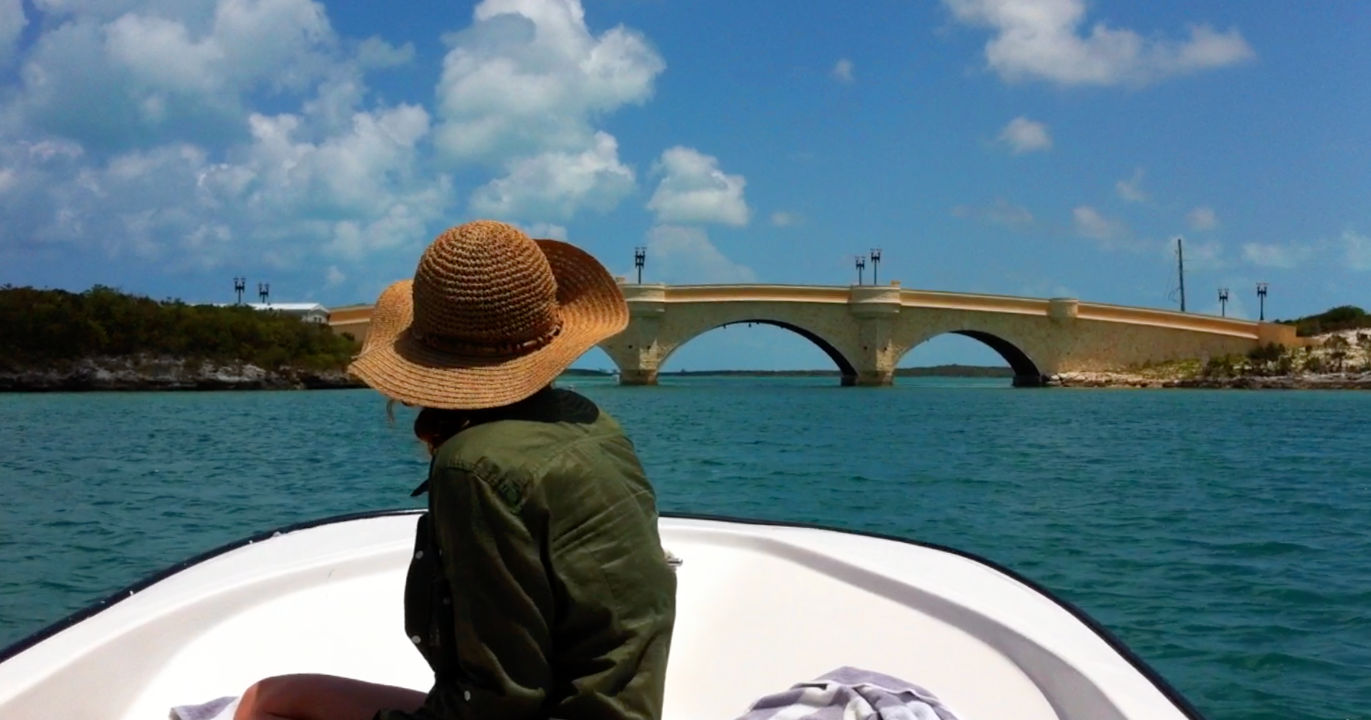I don’t write much direct and personal financial advice on this blog. Rather, I do a lot of research and mostly leave you to come up with your own conclusions. But today, we’re going to do things a little differently. I want to share with you a bit of advice—a money mindset.
I think this mindset is most responsible for Jenni and me reaching financial independence by the age of 35. It’s a financial mindset that might seem rather simple, and even obvious, on its face. But, I think there’s nuance and detail that leads many people to step right past it.
And yet, I feel that incorporating it into your lifestyle and decision-making will be the thing most responsible for you building and protecting your wealth in the long term.
Before we get into it, I want to say upfront that this is a sort of “second-level” money tool. By that, I mean that if you’re struggling to spend less than you earn or are early in a career—perhaps making closer to minimum wage—this advice might be hard to follow. While valuable, I understand that it might not feel applicable for you (yet).
With that disclaimer out of the way, let’s get into it.
My Money Mindset
So the secret to building wealth and reaching financial independence is actually a bit counterintuitive. Why? Because it’s all about spending money.
You might have heard this before:
Spend extravagantly on the things you love, and cut costs mercilessly on the things you don’t.
And that’s great advice. Except, it’s too simplistic.
And perhaps too extreme. Let me flesh out the money mindset I’ve built that explores the nuance of wisdom contained in this quote.
How extravagantly?
You might have figured out from Jenni and I’s writing on this blog that one of our hobbies or passions is international adventures. It’s travel.
At this point, we’re doing pretty well financially. We don’t need to work for money. And while we have a monthly budget report we deliver to you our readers, we don’t actually have a specific set of monthly line items we stay within a particular range for.
We spend whatever we spend on what we want or need each month.
Sure, we’ve been conditioned over time to spend similar amounts and understand what we do (and do not) value. And that’s part of our money mindset. But we don’t intentionally keep our spending within a specific dollar amount for any particular category.
We’re incredibly fortunate to be at this point, financially, in our lives.
But as much as we love to take an adventure out somewhere in the world, it’s hard to say that we ‘spend extravagantly’—or even want to—when traveling.
It’s about value
We tend to stay in pretty inexpensive and standard hotels or motels.
We fly coach, and often with reward miles.
Our rental cars are always whatever is least expensive, and we routinely try to bypass them altogether if there’s good local transit.
I can remember some absolutely insane $2 minibus rides around the narrow, rolling hills of Grenada in the Caribbean.
We took overnight trains from Northern to Southern Europe with a rail pass and wound up sleeping nearly upright in coach seats.
We could stay in fancy resorts and fly first class. Travel is something we love to do and that’d certainly be spending extravagantly on what we love.
And we could afford to do it.
But that’s where the nuance is lost and a healthy money mindset falls apart. We could afford virtually anything.
Buying extravagance
Staying at the Ritz would remove the more local experiences we enjoy. Sure, the pillows would be fluffier and the whole property experience would be much more glamorous. But at least for us, we don’t want to spend much time in our room.
Spending extravagantly would make little marginal difference.
Similarly, we could certainly afford to avoid the harrowing rides on the minibus in Grenada, but that was part of the experience for us. It was memorable. That’s the reason I could think of it off the top of my head and then go hunt down the video I posted above!
The part where we “spend extravagantly on what we love” is in visiting exotic, adventurous destinations for extended periods of time.
For us, it might make sense to blow a bunch of money renting a boat while staying on a tiny, remote Bahamian island.

Because that’s just what we’ve done before.
The small, old boat and rustic B&B cost us an arm and a leg at the time. We certainly could have stayed somewhere much nicer for the same price had it not been so remote.
But that’s what was valuable to us.
There happened to be a Sandals resort on the main island, Great Exuma, across the water from tiny Stocking Island where we stayed.
Staying at the Sandals was significantly more expensive than the already costly Saint Francis we decided to call home for a while.
But “spending extravagantly” on Sandals wouldn’t have created a more enjoyable experience for us. At least, at the time, it’s not what we were after.
How deep is the cut?
Once you’ve figured out where in your life intentional spending is effective at raising your quality of life, there’s the other side of the coin—the cutting. We all spend more than we want to in different areas, with just a tinge of regret that sits with us.
I know for me, it’s often those nights out at restaurants or bars. Personally, I don’t get much value out of the food or drinks beyond what I get at home. I don’t find the food particularly more appetizing or enjoyable (and certainly not 500% more so).
The drinks don’t taste eight times better than out of the bottle at home.
So, by the advice offered at the outset of this article—I should cut this area mercilessly, right?
I did that, for a time.
And while it was nice to save some cash, I don’t think it was the smart thing to do.
Here’s the thing: sometimes cutting your spending in different areas can have a net negative effect.
To the bone
Take a simple example: cars.
Perhaps you don’t care about how your car looks—A to B. I feel this way.
If you need a car to transport you around for work and activities routinely, it might be tempting to follow the advice to “cut mercilessly”. You could find a 1992 Honda Civic with 180K miles on it that runs OK for $800.
There isn’t anything particularly wrong with this decision. And for some, it might make sense.
But you might not need to cut that deep, because it might go against other things you value.
Perhaps you value more modern safety standards. And while safety can be an expensive illusion, that doesn’t mean you aren’t legitimately riding around with anxiety eating at you every time you’re in your old beater.
Maybe you are environmentally conscious. Perhaps you worry about the pollution you’re contributing through the old exhaust tech you’re pushing burned-up dinosaur remains down and later inhaling.
And lastly, maybe you just want a few creature comforts. A smart media system to connect your phone to for music, audiobooks, and directions while you blast down the roadway.
Don’t cut what matters
So what happened when I cut out the spending I didn’t care about going out for meals and drinks?
I lost something that did matter to me. Social experiences with friends. Time with people I care about.
I didn’t care about the $40 steak or the $15 cocktail.
But I cared about the few hours spent away from digital distractions and life while having time with people that matter to talk, catch up, and reminisce.
The meal wasn’t worth the bill, but the friends were.
What did I learn? Well, like with nearly anything in life—it’s about finding a balance. I could trade the steak and cocktails for a salad and water.
I got to keep the time out with friends where they could escape their responsibilities at home while at least reducing the parts I didn’t care so much about.
It’s compromise.
And, Jenni and I have both tried to incorporate more social activities that focus more deeply on the part that matters: the interaction with friends and family. Pot lucks, game nights, and barbecues offer a much more interesting dynamic than a loud, dark bar while simultaneously saving everyone a few bucks.
But someone has to step up the plate and organize those events. That could be you, too.
It’s not unlike the car example above. Just because you don’t care about the emblem on the hood doesn’t mean you don’t care about safety standards, exhaust regulations, or quality of life improvements.
And it’s okay to effectively spend where it matters while cutting where it doesn’t. That’s a healthy money mindset.
Sustainable Financial Independence
What I don’t like is general categorical spending advice like “don’t spend money on cars” or “don’t waste money on makeup”. What I don’t think is constructive or sustainable is to trying to convince a motorhead to give up their hobby entirely just to try to reach FIRE.
If what you love is cars, alcohol, or personal care—so be it. There are ways to capture the best parts of the hobby or passion without spending your way into debt and financial dependence.
You don’t have to spend extravagantly in order to enjoy what you love.
Compromise? Sure. That’s where the nuance comes in.
It’s okay to spend money on what really matters to you, within reason. Sure, you still need to set some limits or work within a budget, but sometimes you’ve got to take a little risk in life.
What doesn’t make sense is to drop a load of dough on and take risks in areas that don’t matter to you. If you really care about having a fancy watch—buy a nice watch—if you can afford it. If you don’t care about watches, why would you ever consider blowing money (and your time) on them?
Ultimately, the part I think that will help you reach financial independence the most is the question mark the quote elicits.
“Spend extravagantly on what you love…”—what do I love?

Readers—where in life do you find that spending matters? And where do you cut?
I feel like it’s worth spending on quality travel gear, new adventures, and things that last.
But, I cut my own hair, walk & bike around town, and can’t hit a damn thing with a 3-iron.
Let me know in the comments!
Epilogue
This post is centered around a quote from Ramit Sethi’s I Will Teach You To Be Rich, an introductory personal finance book I’ve bought for friends several times over the years.
Much of the book focuses on cutting out the things, expenses, and parts of life you don’t enjoy. Do that, and you can retire early from the rat race to do what you enjoy. Check out a review of IWTYTBR recently written by a friend of TicTocLife, Impersonal Finances.
One of the key stumbling blocks with FIRE is that folks learn about it and go big right away. They drastically cut back on everything instead of most things (and especially that which doesn’t matter to you).
They wind up cutting what matters and what they enjoy.
Deprivation sets in.
They don’t build a sustainable money mindset.
They forget to build the life they want, and then to save for it.


18 replies on “A Clever Way to Financial Independence (My Money Mindset)”
Hey! Thanks for the shout out! All in a all, a great book that can help (and has helped) a lot of people, but I also to do some nitpicking haha.
I love the logic around going out–which I am doing way too much of post-pandemic. You’re paying for the social interaction more than you are the expensive drink. I just need to make sure to keep it a only a few of those $15 cocktails!
Keep those awesome and unique travel experiences coming!
My pleasure! Yeah, it’s an easy and enjoyable read, too. More casual, less number crunching. I think that’s helpful for some folks.
Haha—we can relate. Just finished booking car rentals and a very fancy beach house for thousands. All for the sake of some good catching up with friends after over a year of a lot of missing out. Worth it in that regard! Just can’t overdo it!
that’s pretty much how we do it. in fact i’ll be writing a post soon about what we would to enhance our lives with some extra money. everybody’s answer will be different. for instance, we pay up for flight times that keep us close to our sleep schedule and also when our friends will be available. if they have kids or other schedule responsibilities like work we want to make sure we max out time with them. if the motel or flight costs more then so be it. the same goes for what you said about bars and restaurants. we pay up for the cost of social time out and about but i rarely do it at home. we’ve made some great memories out with friends but good wine at home is fine with me.
i would caution anyone just to make sure they are spending according to their own values and not somebody else’s. i think that’s the crux of your post: think fo’ yo’self about this stuff.
You’ve got it Freddy—haha, coming in with the money wisdom! 🙂
And yep, to each their own when you can afford it! Looking forward to your post!
Good one. We follow a similar path. I was talking with my wife last weekend and we realized that we hadn’t ever bought a sofa brand new in both our lives. We just bought a new Ikea sofa last weekend after 8 years of using a second house sofa from her sister, then before that I had some from my parents…same could be said with other furniture we have…point being we spend quite bit on travel over the years and yet never bought new furniture for the house because it hasn’t been a priority for us. Our kids beat up our furniture a ton and not having something new to guard was also less stressful I realize. It’s easier to save when you can hone in on what you enjoy first–as your post articulates quite well.
8 years of using a second hand sofa, saving cash in the meantime, probably afforded you all your future sofa purchases through those invested dollars. I just googled the “average sofa life” and it’s apparently 7-15 years for a brand new one. If you can stretch a second-hand one to 8, your new one will probably last a very long time. You’ve developed a way to make your sofa last and decided what they’re really worth to you. That pays you dividends in the future!
Sometimes a little laziness or disinterest can help you identify what matters…and what doesn’t.
I recently spent $400 or so on travel. Not even by air but by car. I’ve been waiting and wanting to unleash my pent up demand for a while now. The Delta variant looks like it’s gonna make it hard to unleash the pent up demand quickly so have to get it all out of my system while I still can.
Never cut on what matters! Your mental health is far more important.
Haha—was that $400 on a car rental? We’ve been locking up lots of car rentals lately for future travel, and boy they’re expensive. Even having special discounts with an AMEX platinum only brings the price down to somewhat tolerable levels (and of course trying Auto Slash—recommended if you haven’t!).
And you’re right, Delta seems to be slowing things down. But, still plenty of the world to explore without taking undue risk! That plays into your last comment—mental health (your own)—shouldn’t be downplayed when it comes to getting out and being in the world. The pandemic hasn’t yet infected woodland hikes, river kayaking, or rock scrambling.
Good stuff. You nailed it for sure. I’ve used this approach for the entirety of my adult life and it’s worked brilliant for me. Never any reservations about investing in travel, adventure, and friendship here. Spend on what counts the most and use a value approach elsewhere.
Oddly, I’ve spent more eating out this year than the past 5 years combined. The basis is meeting new people and spending quality time with friends. I’ve always seen restaurants as a poor value and choose to view my recent expenses as an investment in new and sustained friendships instead. Plus, I did have to try a few place to finally find a decent sushi joint here in WA ?
The “what counts” [to you] is the most important part. Truly evaluate what that means to you—be honest—then focus there. It’s fine if it doesn’t mesh up with what others do, but know what does “it” for you.
Haha, yeah, we’ve been spending quite a bit more than normal going out. Just last night, I think the bill was about $60 for the two of us at a pub. But, it was an opportunity to catch up with a group of friends/family and celebrate a birthday. Worth it—but we’re at a point in life where we can afford it. That said, I should have skipped the entree/appetizer combo and just stuck to one or the other. That black bean burger was subpar (a poor value for sure!).
And yeah—often you’ve got to get out there and try new things to find what you like/don’t like! There’s a cost to that. But a much bigger cost to … not finding things/activities/sushi that bring you contentment!
Another way to think about this is to try to spend money on things that increase your happiness. We adapt our lifestyle quickly when it comes to things in our life. This is called the Hedonic Treadmill. It only takes a few weeks with a new toy to make it feel like a part of us. Then when this new toy breaks we will we have to replace it with a new one or we feel a sense of loss. It is better to never have it in the first place than to feel the loss in the future. Helps to explain why I try to avoid all the free trial periods that so many vendors offer. Many people forget to cancel after the free trial period is over and even when they do they feel a sense of loss.
Hey Tim! I owe you an email or two 🙂
That’s a good way to put it, Tim—relating it to the Hedonic Treadmill. I think, for me, it’s easy to see it as a “new toy”, too. Though, in reality, for many, a new physical thing really might be what makes them happy and keeps them happy for a while. That’s okay if it’s really the case. Similarly, while I really enjoy new experiences and feel they keep me excited and interested, for some, they may just see it as “yet another beach” or “yet another bunch of trees”—it might do little for them. And that’s okay, too.
To your point, the goal is to find what makes you tick—what really gets you excited. Find what drives your zeal for life, and invest in that. Cut the crap that doesn’t matter to you.
We go through a lot of these sorts of trials (digital entertainment, delivered meal kits, etc.), and while I think we do a good job as just using them as free temporary replacements for other things we’d spend money on, I’m very guilty of forgetting to cancel them occasionally! I’ve got a terrible memory and have to rely on digital systems to keep me on track, ha.
Good points, Tim! Nice to have you come by again.
I like to spend money on high quality foods and cook them myself. The extra margin is worth it to me because even organic groceries are still cheaper than eating out all the time at mediocre restaurants.
Speaking of restaurants, I like to go to a very fancy restaurant once a month for a memorable meal, rather than eat at fast food places or get Chipotle and Starbucks every day for lunch. It’s much cheaper to make a huge batch of chickpeas and rice and drink the free breakroom coffee (which is actually from Starbucks).
I tend to think a similar way in many regards—
– Organic, quality food is still cheaper than restaurants and I largely prefer it.
– Hosting board games and providing drinks/snacks is still cheaper than a bar, and way more conversationally enjoyable.
There’s lots of mental hacks like this that make good sense that cut out some wasteful spending. Nice!
Hi Chris
Enjoyed your article. Pursuing FI is a long term goal, it has to be sustainable. So cutting costs where it does not matter/hurt much makes a lot of sense. Some spendings/investments provide great value and are important for an individual or family and here cutting should be made cautiously and it’s important to find good alternatives (e.g. family holidays, there are always cool ways to travel together but not overly expensive)
Cheers
Hey thanks Savy! Glad you enjoyed it.
And yes, I’ve been hammering that “sustainable FI” point home lately. It’s not a race!
For family holidays: anything nature focused really delivers some bang for buck and more novel experience for many!
Well laid out, Chris. Our money mindset is aligned as well. We try to value-spend to keep our journey to financial independence sustainable.
I think that getting introspective, understanding what you really value, and then spending on those things (trying to cut back in others) is the key to achieving FI for most people.
The biggest problem I see, which you touched on, is the lack of nuance in how people interpret this type of advice. Many cut back too significantly in areas, or spend too lavishly in others. Some of the examples in Ramit’s book (or may have been a podcast I heard him on) are dangerously lavish, which could confuse people. If you love eating out at fancy restaurants and can afford it, then make room for it in your budget. But if you’re spending so much on it that you aren’t saving any money, you’re not going to get anywhere.
It truly is all about balance, which can take some trial and error to see where you can cut or spend to increase your own happiness.
Yep, and to be honest, it’s probably why a Mr. Money Mustache approach was/is a little more popular—cut virtually everything, because it’s nearly all a waste. Get to FI ASAP, then go live life.
But the problem with this, as you said, is that it’s often not sustainable. You can’t let that feeling of deprivation creep in. Kind of like a diet, sure, the best course of action to lose weight is to just eat a lot less food. But that’s not sustainable for most people.